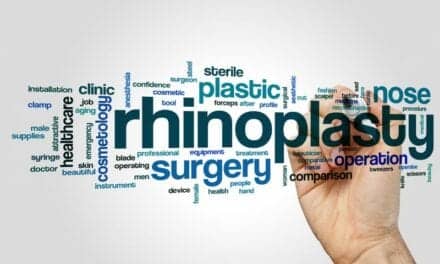Jointechlabs – a provider of point-of-care regenerative medicine therapies – announces that the US Food and Drug Administration (FDA) has cleared the company’s MiniTC for point-of-care fat tissue processing designed to obtain microfat (or fat grafts), for multiple indications.
Jointechlabs plans to focus on a range of therapeutic areas including medical aesthetics, plastic surgery, orthobiologics, and wound healing, according to a media release from the San Francisco-headquartered company.
A Step Forward in Regenerative Medicine
“The FDA clearance of MiniTC represents an important step forward in the regenerative medicine market. The company’s comprehensive and proprietary technology provides a variety of tissue reconstruction and regeneration options, enabling healthcare practitioners – in medical centers, hospitals and clinics – to provide safe, reliable and cost-effective cell enriched fat grafts at the point-of-care.”
— Nathan Katz, Jointechlabs’ CEO
MiniTC is a disposable, closed-loop medical device that can be used in the clinic setting, with no change in infrastructure, eliminating the need for manual processing of fat tissue in the lab. Also, the device is reportedly less costly, cumbersome and labor intensive compared to what currently exists, according to the company in the release.
MiniTC’s performance has been validated in vitro and in vivo, including an observational orthopedic study in Israel and the UAE, involving 47 patients – with 92% reporting functional improvement and no complications. Additionally, it was validated in clinical studies with lymphoedema patients as well as in the areas of facial aesthetics, hair regrowth and wound care.
“Jointechlabs’ MiniTC device is easy to use and effective. It is encouraging to see the continuing development of new technology for regenerative medicine that is compliant with FDA guidelines.”
— Joseph Purita, MD, orthopedic surgeon and director of the Institute of Regenerative Medicine in Boca Raton, Florida
Microfat Isolation
MiniTC allows for processing of adipose (fat) tissue without exposure to the external environment. The final product of the processing is a fine washed fractured fat tissue known as fat graft or microfat. When implanted by injection, the essential effect can be attributed to the preservation of the integrity of fat tissue and the stromal cells within its natural niche.
Together it constitutes structural factors that trigger the reconstruction, regeneration and healing of connective tissues. It’s a gentle process that uses an individual’s own fat tissue to cushion and support areas of injury or damage as the body heals itself, per the release.
[Source(s): Jointechlabs, PR Newswire]
Related Content:
Regenerative Medicine in Facial and Plastic Reconstructive Surgery Reviewed
RECELL System Receives FDA Approval
Specialty MED Training Now Offers Online Combination Cellular Hair Regrowth Training Course




